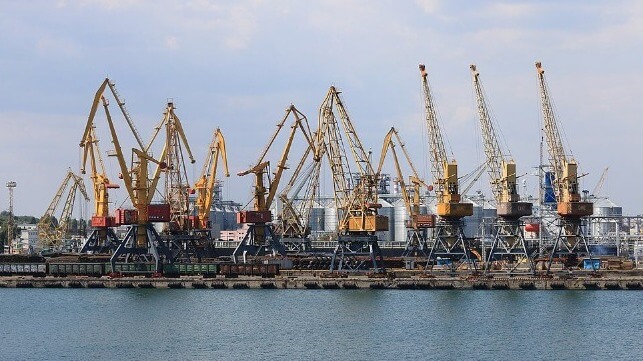Russian Invasion Could Disrupt Microchip Manufacturing, Wheat Supply

Shipping is amongst the many industries that will be impacted by the escalating Russian aggression in Ukraine. The operations of commercial ports in Ukraine have been halted as Azov and Black Seas turn into flash points.
The impact will certainly be far-reaching. Out of the many sanctions measures issued by EU and US, none target Russia’s exports of crude oil and coal - a tacit acknowledgement of Russia’s immense role in global energy supply system. However, Germany has managed to halt certification of the Nord Stream 2 pipeline, a key piece of infrastructure for Russia’s natural gas exports.
Nonetheless, imminent disruption in energy supply is not the only reason for concern. The global industrial complex is dependent on some vital commodity exports, which are likely to face shipping hurdles as the Russia-Ukraine conflict progresses.
Russia and Ukraine are critical suppliers of neon gas and palladium metal, both used to produce semiconductor chips. In fact, Ukraine has a 70 percent share of the global supply of neon while Russia supplies a third of the global demand for palladium, according to analysis by Techcet.
Although most large chip companies - ASML, TSMC, Intel and SK Hynix - indicated last week that stockpiling and diversified procurement would help minimize disruption, industry insiders say there could be an impact in the long term. This dampens recovery prospects for the chip-making sector, which has been hard hit by COVID-related supply chain disruption.
Meanwhile, bread shortages are expected in some markets dependent on Russia and Ukraine’s wheat exports. Specifically, the MENA (Middle East and North Africa) region will be hard hit, as half of Ukraine’s wheat is exported to the area.
“If a war causes disruptions to these supplies, this could hit food import dependent countries like Egypt, Yemen, Libya, Lebanon, and others hard. Between rising energy and food prices, the Russia-Ukraine crisis could trigger renewed protests and instability in several MENA countries,” noted a special briefing by the US-based Middle East Institute (MEI). The potential consequences are grave: local and imported grain shortages have been cited as one of the causes for the 2011 Arab Spring uprisings.
According to a 2021 report by the US Department of Agriculture, the Middle East imported more than 36 million metric tons of wheat, most of which came from Russia and Ukraine. Most of the Ukrainian and Russian wheat exports pass through port terminals along the north shore of the Black Sea, and it is not certain when these ports will re-open.
The opinions expressed herein are the author's and not necessarily those of The Maritime Executive.
